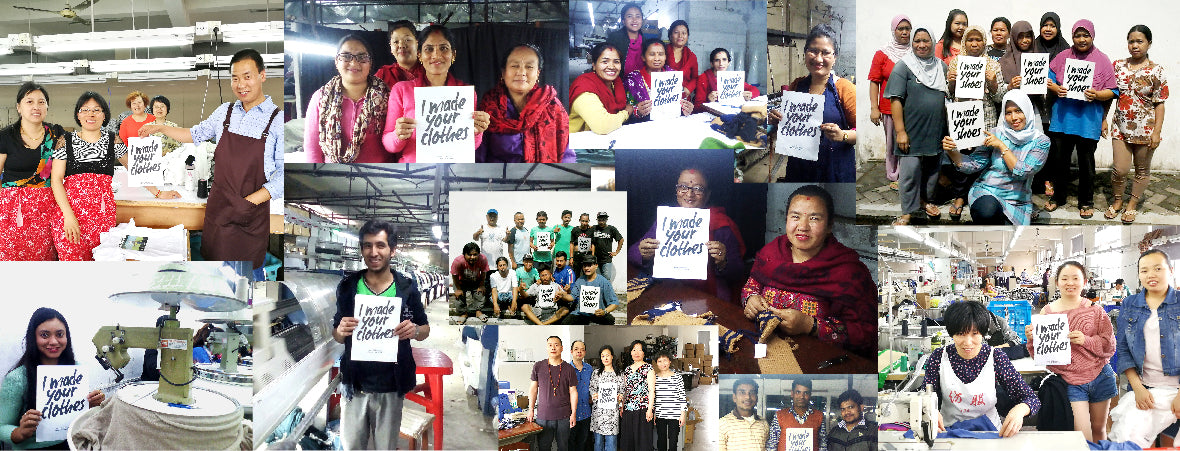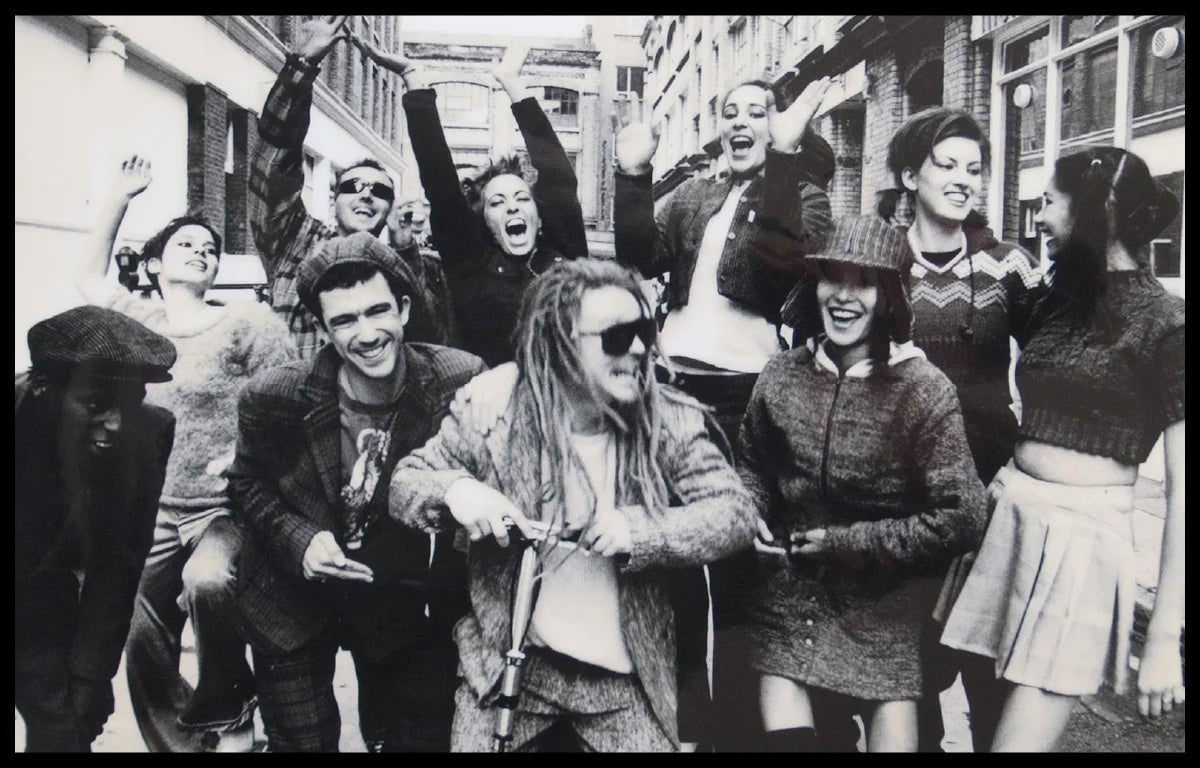Our Suppliers

We produce our garments in factories in Kathmandu, Indonesia, Slovakia, India and China. We have been working with some of these factories since the early days of the brand. They are medium sized, family run businesses that have grown with us over the years, in turn helping each other to shape the business we are today. Generally, it is very rare that we see workers from any of our factories leave their jobs.
Since the beginning Komodo's business ethics have always been a priority and it’s always been important that the way in which we manufacture our products be sensitive to the environment and that the people involved at every step of the process are treated with respect, receive a fair wage and are not expected to work in uncomfortable or hazardous conditions. We visit our factories and always discuss ways in which we can help to strengthen our partnership from an ethical and sustainable view point. In the end our main role is to simply be a good customer to these factories, to order well, to pay them well and beyond that to encourage them to think and act fair and green - we are proud of the suppliers we work with.
The majority of factories we use are GOTS or SEDEX audited. Others are small artisan workshops that we work closely with and visit regularly. The following outlines the standards we expect of all our suppliers...
SHENGZHOU FUDI GARMENT CO LTD
3rd Floor, 8 Dangui Road, Necktie Ind. Park
Shengzhou City, Zhejiang Province 312400
China
Certification: SMETA / SEDEX
READ MORE ABOUT FUDI GARMENTSSEAGULL KNITWEAR
58, Avinashiappan Layout,Kurinji Nagar Extn
Sheriff colony, Tirupur 641 604
India
Certification: GOTS
TATRASVIT SVIT-SOCKS a.s.
Mierová 1
Svit SK-059-21
Slovakia
Certification: GOTS
KNITEX INDUSTRIES PVT LTD
Bhangal 8
Kathmandu 44600
Nepal
Certification: Under audit TBC
RAJLAKSHMI COTTON MILLS Pvt.Ltd
Plot No-S2/01-02, Industrial Area, EPIP, Kasna Greater Noida, Uttar Pradesh - 201310 Greater Noida
India
Certification: GOTS
READ MORE ABOUT RAJLAKSHMI MILLSEthical Business Behaviour Policy
Use this text to share information about your brand with your customers. Describe a product, share announcements, or welcome customers to your store.
Employment Ethics
No child labour or forced labour
In accordance with the International Labour Conventions (ILO) no child labour will be used in the production of our garments. The factories used by Komodo do not employ any underaged employees. Factories are required to keep an employee register and age certification is mandatory in order to sign a contract of employment.
No Exploitation of Work Force
Exploitation ofthe local workforce still does occur in today's globalized economy. So, it is important to be vigilant. Our suppliers agree to follow International Labour Standards on working hours: 48 regular hours of work per week, with a maximum of 8 hours per day with an uninterrupted 20 minute rest break when working more than 6 hours in one shift. Wages are to be paid regularly with overtime being voluntary and paid. Workers are entitled to one day off per week and are allowed to observe religious and cultural holidays. Factories work with timecards systems in order to log hours worked by their staff. Most workers making Komodo garments receive more than average and more than minimum wages for their roll.
No Discrimination Employment Policy
Our factories do not discriminate against employees based on race, colour, sex, religion, political affiliation or social origin.
Workers' Rights
Regular Meetings are held between the owners of the factories and their staff whereby any grievances or complaints the workforce might have is addressed and resolved.
Additional Employee Benefit - These differ between factories, but include programs like residential dormitories, food allowances and internal medical insurance programs.
All employees have the right to unionise and sould not be discriminated against for doing so.
Living wage
We insist that all our suppliers pay their staff a decent living wage.
Work Place Conditions
Health and Safety
Staff receive training dependant on the nature of their work, so that any occupational hazards can be avoided. All machinery is regularly inspected; maintenance records kept, and full operating instructions are available to employees. Only trained staff are allowed to handle any hazardous materials. First aid training is provided to managers.
Fire Regulation
Fires in garment factories have been all over the news in recent years and have led to too many deaths that could have been avoided if basic fire safety policies had been followed. We expect our CMT (cut make trim) factories to hold fire safety certificates issued by local government, subject to regular inspections.
Hygiene Standards
Basic hygiene throughout factories is expected to be of a high standard, particularly in communal staff areas, for example sleeping dormitories and food preparation areas.
Environmental Policy
Fabrics & Sourcing
We are committed sourcing
the most sustainable fabrics and yarns available to create our collections. Materials
used are as natural and biodegradable as possible. Where man made fibres are
used they are either produced using closed loop systems that minimise potential
environmental damage or are from recycled sources. We follow a Restricted
Substances List to avoid use of polluting substances that might occur in all fabrics and fittings. Below is a list of
fabrics we use in our collections;
COTTON – All cotton used in our collections is certified organic.
WOOL – Merino is certified from non-mulesed sources.
TENCEL, RAYON & MODAL – Sustainable wood pulp fabrics produced by the Lenzing company using their closed loop system which reuses 99% of chemical solvent used for processing.
LINEN – A naturally sustainable yarn. The cultivation of the flax plant requiring little water to grow and produces almost no waste due to the entire plant being used.
POLYESTER & NYLON – Where it is necessary to use these material, for example to strengthen yarn or give stretch quality to a product (ie. socks), we use only recycled.
Waste Disposal
Our concern for our manufacturing partners is that they try to reduce waste and recycle as much as possible. However, when waste unavoidably arises as a by-product of the production process, we make sure our factories dispose of it in clean, safe and environmentally friendly way. All factories sell their scrap waste to recycling units. Every factory does its best to conserve energy and run efficiently.






